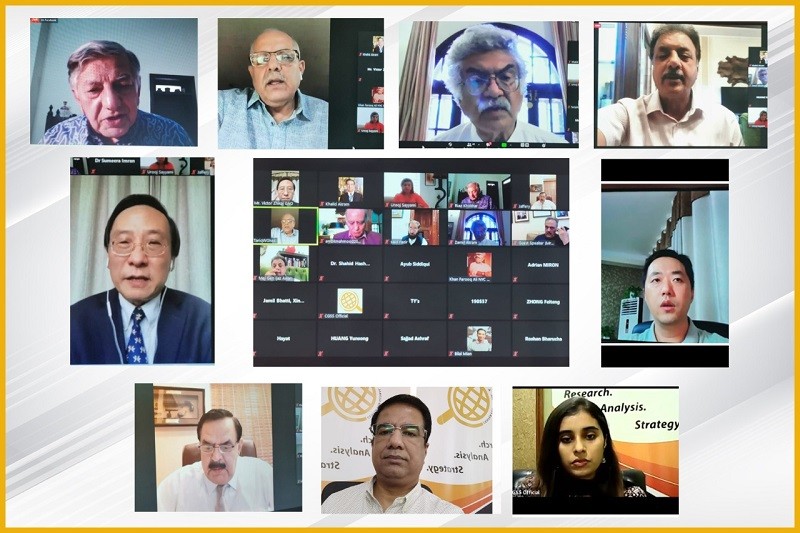ISLAMABAD, Pakistan: The Center for Global & Strategic Studies (CGSS) on Wednesday organized a Webinar “China-India Border Standoff & Strategic Implications for Islamabad”.
The aim of the Webinar was to discuss the recent border tensions between China-India and its impact on regional security and stability.
Commencing the Webinar, the President CGSS Major General (retd) Khalid Amir Jaffery said that China has never been an expansionist state and has never followed an aggressive policy.
However, India has continued to follow its traditional policy of absorbing territory gradually. They have been doing this to Pakistan and now China.
It is clear that China is no longer reluctant to act militarily if its core interests are threatened.
The former Foreign Secretary of Pakistan Riaz Khokhar said that India came up with new maps, thereby prompting the whole crisis.
It has been vocal about not only recovering Azad Kashmir but Gilgit-Baltistan and Aksai Chin as well.
India is now projecting itself as a victim and seeks attention from western powers especially the United States, as in the US there is mounting anti-China sentiment and China is seen as a challenger to its global status.
The Chair Professor at Soochow University & Vice President at Center for China & Globalization in Beijing Victor Zhikai GAO mentioned the Tonya- Harding syndrome in China-US relations.
Victor Zhikai GAO said that the goal of whacking Chinese kneecaps to prevent China’s steady rise is a futile attempt by the US.
China will be significantly larger and more impactful than the US in the next few years and the US will have to accept this reality.
The Chair Professor at Soochow University further said that war is against China’s fundamental interests of peace and mutual peaceful coexistence, and India’s fundamental interest of industrialization.
Moreover, any military escalation will be a drain on resources for both the Countries, though more detrimental for India.
The former Defence Secretary of Pakistan Lt General (retd) Tariq Waseem Ghazi said that China has the capability to respond to India’s aggression both diplomatically and militarily but it has refrained from doing so, keeping in view its diplomatic and strategic domain in the region. India has been falsely propagating against China.
Pakistan and China need to further strengthen and build a greater collation, partnership, and mutual relations.
The former Permanent Representative to the UN Ambassador Zamir Akram said that a new cold war has been initiated hinting towards a tri-polar world.
The US has been promoting and supporting Indian aggression in the region causing a threat to regional peace.
Ambassador Zamir Akram said that the immediate trigger to resurface the issue was the Modi government’s decision to change the status of Jammu and Kashmir. The danger of standoff escalating into wider confrontation cannot be ruled out.
The Associate Dean, School of International Studies, Sichuan University, Chengdu, China Professor Huang Yunsong stated that India has overestimated their military strength imagining that China will succumb to its tactics but our message to India is very clear.
China will not allow violation of its sovereignty. He appreciated Pakistan’s commitment towards CPEC projects.
The Defence Analyst Major General (retd) Ijaz Awan commented that recent developments have brought Pakistan and China close than ever before, thus there is a need to enhance strategic cooperation to guard their joint territorial integrity and Strategic interests.
The Webinar was attended by 50 participants and was moderated by the Executive Director Lt Colonel (retd) Khalid Taimur Akram.
